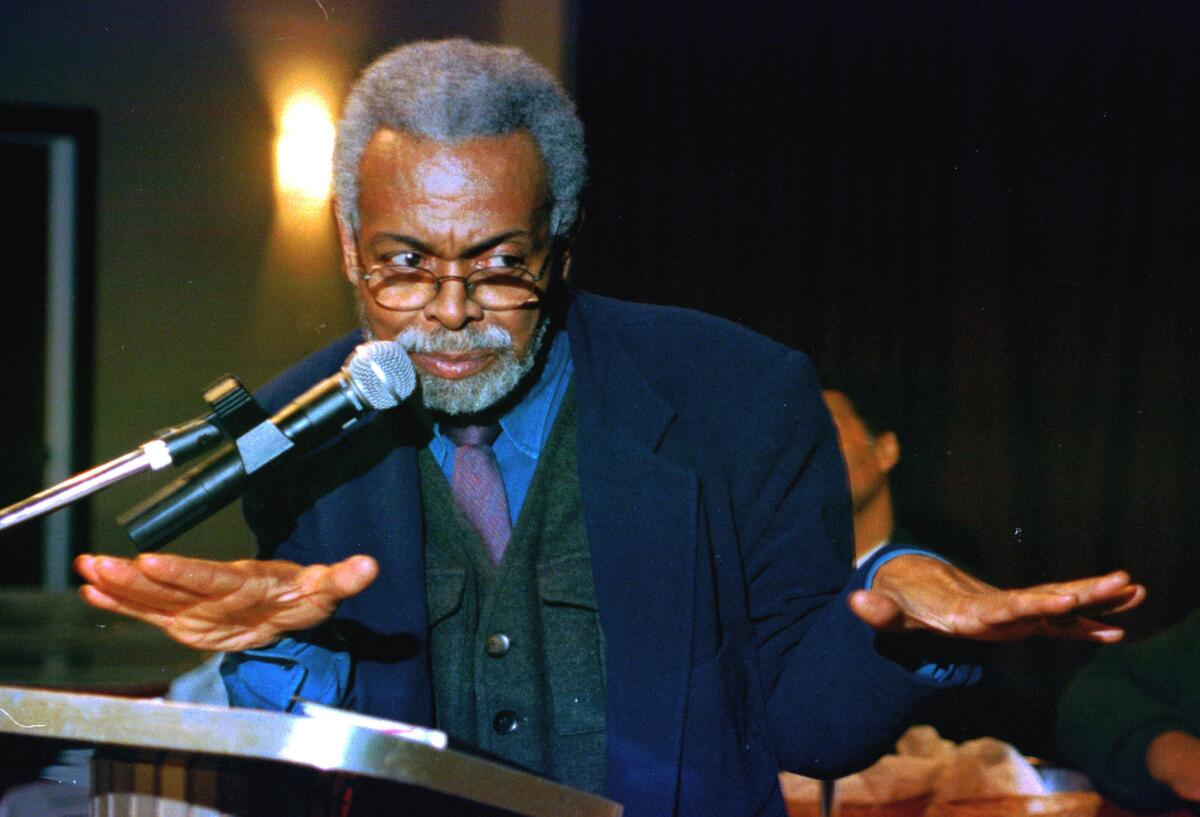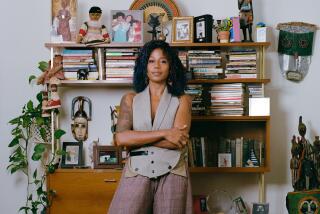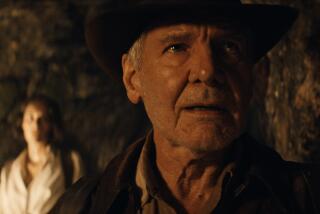Amiri Baraka: Carl Hancock Rux pays tribute

- Share via
Poet and playwright Amiri Baraka died Thursday at the age of 79, having influenced generations of younger writers. One of them pays poetic tribute:
”...Climber of all mounts/as this paper will turn yellow & become the thing I answer to. What interval? as this motion (these words) pass into...” -- from “Node” by Leroi Jones (Amiri Baraka), published in Yugen, Issue No. 6, 1960
Poetry for him in a time of assassination is now our sustenance and construction and not merely a book or a vinyl record or (for that matter) a CD (now all archival objects belonging to museums of sound and image) but the metaphysical critique of an assumption.
So I am going to bed remembering performing in Germany at the Berlin Jazz Festival with Amiri Baraka, Miguel Algarin, Guylan Kain, Felipe Luciano (and the many times I had the opportunity to share the stage with Imamu Baraka since then). For him content was the important aspect of form .. .to be revolutionary at all cost.
He was a master of insistence, aesthetic tradition, and theoretical concern for African American people ... an arbiter of literary resistance to canonic form and social justice ... an organizer of movements based on cultural revolution within political practice -- and a staunch proponent of a logical-philosophical treatise advocating the relationship between language and reality as an homage to Tractatus Theologico-Politicus Logico-Philosophicus (essentially, Latin for “ethics and aesthetics as one”).
I hope I will take insurgent advocacy with me always, because I am in the midst of being a poet who is performing the words of a poet concentrated on the body as an organism, as an instrument, as a unit of insult and transient scars ... while learning of the death of a poet whose old posters and chapbooks I own and have held onto and whose daughter was and is a good friend of mine and part of my own visceral and cultural Lower East Side New York world that is no more ... this death has a profound effect on me as it should the world.
The poet who died sat on a 1994 panel in Atlanta with Kevin Powell and Sonia Sanchez and Playthell Benjamin, and I sat in the audience watching and listening and taking notes as the argument of discourse erupted and the discourse returned to my hotel room and wrote itself as a play in response to the ownership of art. That play, “Talk,” is now published and it is because of the poet who died ... so please don’t take that life that death for granted with easy summations or quick Spark Notes as what was and is passed around the table between us.
Poetry for him in a time of assassination is now our sustenance and construction more than you know and not merely a book or a vinyl record or (for that matter) a CD (now all archival objects belonging to museums of sound and image) but the metaphysical critique of an assumption. It is the outcome of an assuming mind; the entity of thought and nature and object and experience of God and freedom immortal. It is pragmatism ... our principle usefulness when at best, approaching an understanding of the “I” of our being and the “we” of our coexistence, we become actual ... even when the objects and tools we hold sacred cease to exist, both literally and figuratively.
There’s no Amiri Baraka 101 class offered in the syllabus. The course is postdoctoral and ever changing its métier.
Rux is a poet, playwright, novelist, essayist and recording artist.
ALSO:
Amiri Baraka, activist poet and playwright, dies at 79
Amiri Baraka captured an outsider’s anger, gave it beauty
When Dashiell met Raymond, or the day Hammett met Chandler
More to Read
Sign up for our Book Club newsletter
Get the latest news, events and more from the Los Angeles Times Book Club, and help us get L.A. reading and talking.
You may occasionally receive promotional content from the Los Angeles Times.








